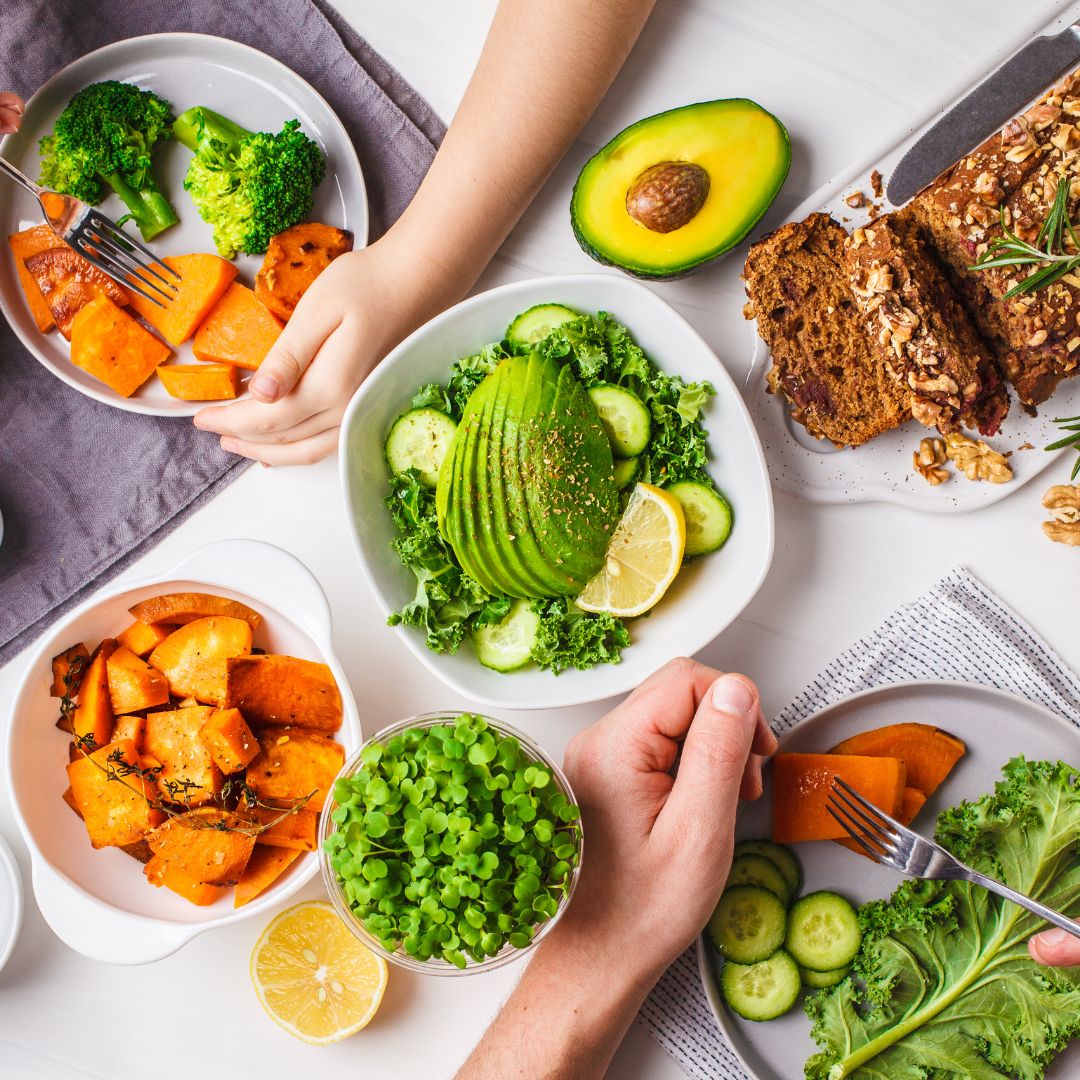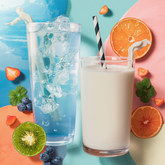In recent years, there has been a significant shift towards plant-based diets as more people become conscious of their food choices and their impact on the environment. Two popular dietary choices that often get confused are vegetarian and vegan. While both diets focus on consuming plant-based foods, they differ in their approach to animal products. In this blog, we'll explore the key differences between vegetarian and vegan diets, helping you make an informed choice if you're considering adopting one of these lifestyles.
Vegetarianism: The Middle Ground

Vegetarianism is a diet that excludes the consumption of animal flesh, such as meat, poultry, and seafood, while still permitting the consumption of some animal products, mainly dairy and eggs. There are several subtypes of vegetarian diets, which vary in the extent of animal product consumption:
- Lacto-vegetarian: This type of vegetarian diet includes dairy products but excludes eggs and all other animal flesh.
- Ovo-vegetarian: Ovo-vegetarians consume eggs but exclude meat, poultry, and seafood, as well as dairy products.
- Lacto-ovo vegetarian: Lacto-ovo vegetarians include both dairy and eggs in their diet but abstain from meat, poultry, and seafood.
- Pescatarian: While not technically a form of vegetarianism, pescatarians abstain from all meat except for fish and seafood. This diet is often considered a bridge between a standard omnivorous diet and vegetarianism.
Veganism: A Strict Plant-Based Lifestyle

Veganism takes a more stringent approach to animal product avoidance. Vegans not only exclude animal flesh like meat, poultry, and seafood from their diet but also eliminate all animal-derived products, including dairy, eggs, and even honey. The underlying philosophy of veganism extends beyond diet; it's a lifestyle that aims to minimize the exploitation and harm of animals in all aspects of life, including clothing and cosmetics.
Key Differences
- Animal Products: The most significant difference between vegetarians and vegans is their approach to animal products. Vegetarians typically continue to consume dairy and eggs, whereas vegans completely abstain from all such products.
- Ethical Beliefs: While some vegetarians may choose their diet for health reasons or personal preferences, vegans often adopt their lifestyle based on strong ethical and environmental beliefs. Vegans aim to reduce animal suffering and minimize their ecological footprint by avoiding all forms of animal exploitation.
- Health Considerations: Vegetarian diets can vary widely in terms of healthiness, as some vegetarians may consume highly processed and unhealthy plant-based foods. Vegans, on the other hand, often prioritize whole, unprocessed foods due to their commitment to ethical and environmental concerns.
- Nutritional Considerations: Both vegetarians and vegans need to pay attention to their nutritional intake, particularly for nutrients like vitamin B12, iron, and calcium, which are primarily found in animal products. Vegans, in particular, need to ensure they obtain these nutrients from fortified foods or supplements.
- Environmental Impact: While both diets are generally considered more environmentally friendly than omnivorous diets, veganism is often perceived as having a lower environmental impact due to its complete avoidance of animal agriculture, which is a significant contributor to greenhouse gas emissions and deforestation.
- Cultural and Dietary Diversity: Vegetarian diets often allow for more cultural and dietary diversity, as they can be adapted to a wide range of cuisines. Vegans may face more restrictions when dining out or traveling in regions with limited plant-based options.

In conclusion, the primary distinction between vegetarian and vegan diets rests upon their differing approaches to animal products. The choice between these dietary paths is often influenced by personal values, ethical convictions, health considerations, and environmental awareness. Both diets can offer health benefits and contribute to a more sustainable food system, reducing the environmental impact of our food choices. To make your plant-based journey more accessible and enjoyable, consider innovative tools like the Milky Plant machine. It eliminates the hassle of seeking store-bought plant-based milk and empowers you to effortlessly create fresh almond milk, oat milk, and other plant-based alternatives. With the Milky Plant machine, you have full control over your ingredients, the ability to customize flavors, and the pleasure of savoring the freshness of homemade plant-based milk.















